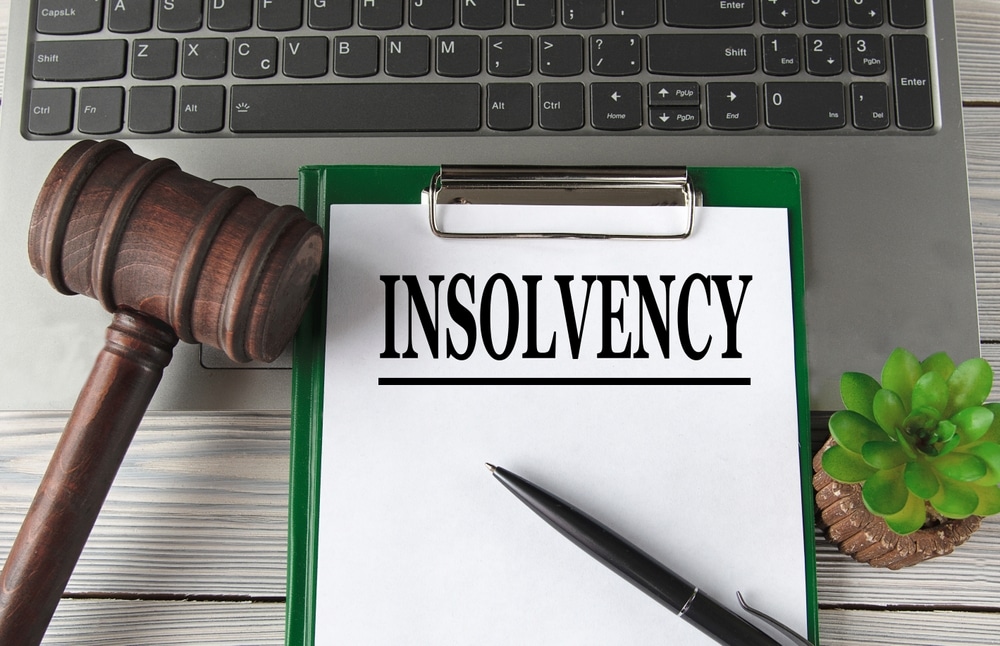
In today’s volatile economic climate, many businesses in Sydney are facing unprecedented challenges that can lead to financial distress and insolvency. With over 11,000 companies entering external administration in the 2023–24 financial year alone, a staggering 39% increase from the previous year, understanding the role of insolvency lawyers is crucial for business owners. This article delves into the intricacies of insolvency law, the services offered by insolvency lawyers, and how they can assist businesses in navigating through tough financial times.
Understanding Insolvency
Insolvency occurs when a business is unable to pay its debts as they fall due. This financial state can arise from various factors, including poor cash flow management, unexpected economic downturns, or significant changes in market conditions. In such situations, seeking guidance from experienced insolvency lawyers Sydney can be crucial for navigating legal obligations and potential restructuring options. In Sydney, the construction and hospitality sectors have been particularly hard hit, accounting for 42% of all external administrations in the 2023–24 financial year.
Recognising the signs of insolvency early can be pivotal. Common indicators include consistent cash flow problems, mounting debts, and an inability to meet financial obligations. If these issues are not addressed promptly, they can lead to severe consequences, including liquidation or bankruptcy.
Types of Insolvency
There are several types of insolvency procedures that businesses may encounter, each with its own implications and processes. The most common types include:
- Voluntary Administration: A process where an independent administrator is appointed to manage the company’s affairs, aiming to maximise the chances of the business continuing or achieving a better return for creditors.
- Liquidation: This involves winding up a company’s affairs, selling off assets, and distributing the proceeds to creditors. Liquidation can be voluntary or compulsory.
- Receivership: A receiver is appointed by a secured creditor to take control of the company’s assets to recover the debt owed.
The Role of Insolvency Lawyers
Insolvency lawyers play a vital role in guiding businesses through the complexities of insolvency law. They offer expert advice tailored to the specific circumstances of each business, helping owners understand their rights and obligations. Their expertise is particularly valuable in navigating the legal landscape and ensuring compliance with relevant laws and regulations.
One of the primary functions of an insolvency lawyer is to assess the financial situation of a business and recommend the most appropriate course of action. This may involve negotiating with creditors, exploring restructuring options, or representing the business in court if necessary.
Key Services Offered by Insolvency Lawyers
Insolvency lawyers provide a range of services designed to support businesses in financial distress:
- Initial Consultation: Assessing the financial situation and providing an overview of available options.
- Debt Restructuring: Assisting businesses in negotiating new payment terms with creditors to avoid insolvency.
- Liquidation Advice: Guiding businesses through the liquidation process, including the sale of assets and distribution of proceeds.
- Representation in Court: Providing legal representation in insolvency-related litigation, including disputes with creditors.
Why Seek Legal Assistance Early?
Seeking legal assistance at the first sign of financial distress can significantly impact the outcome for a business. Early intervention can provide options that might not be available later, such as restructuring or voluntary administration, which can preserve the business and protect the interests of stakeholders.
Malcolm Howell, a partner at Jirsch Sutherland, highlights that while corporate insolvencies are on the rise, bankruptcies are not following the same trajectory, largely due to factors like low unemployment and rising property values. This indicates that with the right guidance, businesses can navigate through tough times without resorting to bankruptcy.

Benefits of Early Legal Intervention
Engaging an insolvency lawyer early can provide several benefits:
- Access to Expertise: Lawyers can offer insights into the best strategies for managing financial distress.
- Protection from Creditors: Legal representation can help negotiate with creditors and potentially halt aggressive collection actions.
- Preservation of Business Value: Early intervention can help maintain the value of the business, making it more attractive to potential buyers or investors.
Common Misconceptions About Insolvency
There are many misconceptions surrounding insolvency that can deter business owners from seeking help. One common myth is that engaging an insolvency lawyer means the business is doomed to fail. In reality, many businesses successfully navigate insolvency with the right legal support.
Another misconception is that insolvency lawyers are only necessary for large corporations. In fact, small businesses, particularly those with liabilities under $1 million, can greatly benefit from the expertise of insolvency lawyers. Greg Thiveos from Worrells notes that increased utilisation of Small Business Restructuring (SBR) is becoming a mainstream option for distressed businesses.
Addressing Stigma and Fear
The stigma associated with insolvency can prevent business owners from seeking the help they need. However, it is essential to recognise that insolvency is a legal process designed to assist businesses in distress. Seeking legal advice does not equate to failure; rather, it is a proactive step towards recovery and sustainability.
Case Studies: Successful Restructuring
To illustrate the potential for recovery, consider the following case studies of businesses that successfully navigated insolvency with the help of experienced lawyers:
- Construction Firm A: Faced with cash flow issues due to delayed payments, this firm engaged an insolvency lawyer who facilitated a voluntary administration process. The administrator negotiated with creditors, allowing the firm to restructure its debts and continue operations.
- Hospitality Business B: This restaurant was struggling with rising costs and declining patronage. With legal guidance, the owners opted for a Small Business Restructuring plan, which allowed them to renegotiate leases and reduce overheads, ultimately leading to a successful turnaround.

Conclusion
Insolvency can be a daunting prospect for any business owner, but with the right support from experienced insolvency lawyers in Sydney, navigating this challenging landscape becomes manageable. By understanding the signs of financial distress, seeking legal advice early, and dispelling common misconceptions, businesses can explore their options and work towards recovery.
Whether you are a small business owner facing cash flow issues or a larger corporation dealing with significant debts, the guidance of an insolvency lawyer can be invaluable. They can help you chart a course through financial difficulties, ensuring that you make informed decisions that protect your business and its future.
For businesses in Sydney, the importance of expert legal guidance cannot be overstated. Engaging an insolvency lawyer may be the first step towards a brighter financial future.
See Also: What do insolvency lawyers do? A practical guide for business owners
FAQs on Insolvency Lawyers and Business Insolvency in Sydney
Insolvency occurs when a business cannot pay its debts as they fall due. It can lead to serious consequences such as liquidation, bankruptcy, or legal disputes with creditors if not addressed promptly.
You should seek legal assistance at the first signs of financial distress, such as consistent cash flow problems, mounting debts, or inability to meet obligations. Early intervention can provide options like restructuring or voluntary administration.
Common procedures include:
Voluntary Administration – appointing an independent administrator to restructure or save the business.
Liquidation – winding up the business and distributing assets to creditors.
Receivership – a secured creditor appoints a receiver to recover owed debts.
They assess financial situations, advise on the best legal course of action, negotiate with creditors, manage restructuring plans, and represent businesses in court if necessary.
Yes. Even businesses with liabilities under $1 million can use options like Small Business Restructuring (SBR) to avoid liquidation and successfully navigate financial challenges.
Early engagement with insolvency lawyers can:
Protect your business from aggressive creditor actions
Preserve business value
Offer access to restructuring options
Provide expert guidance for informed decision-making

